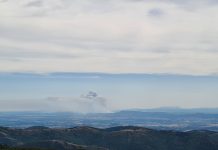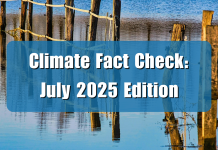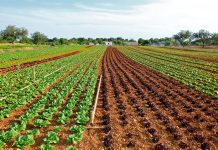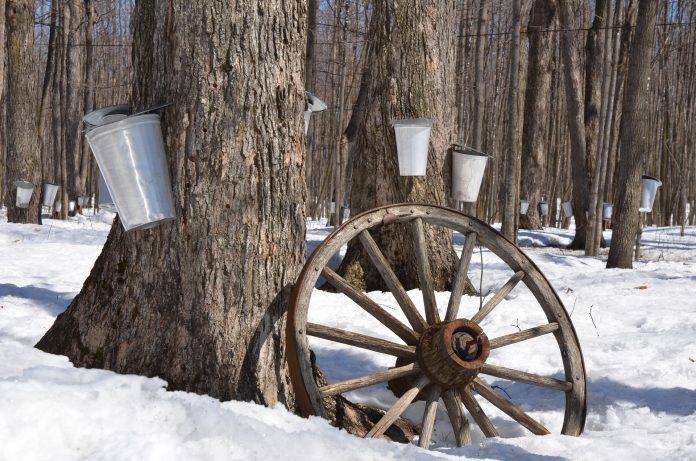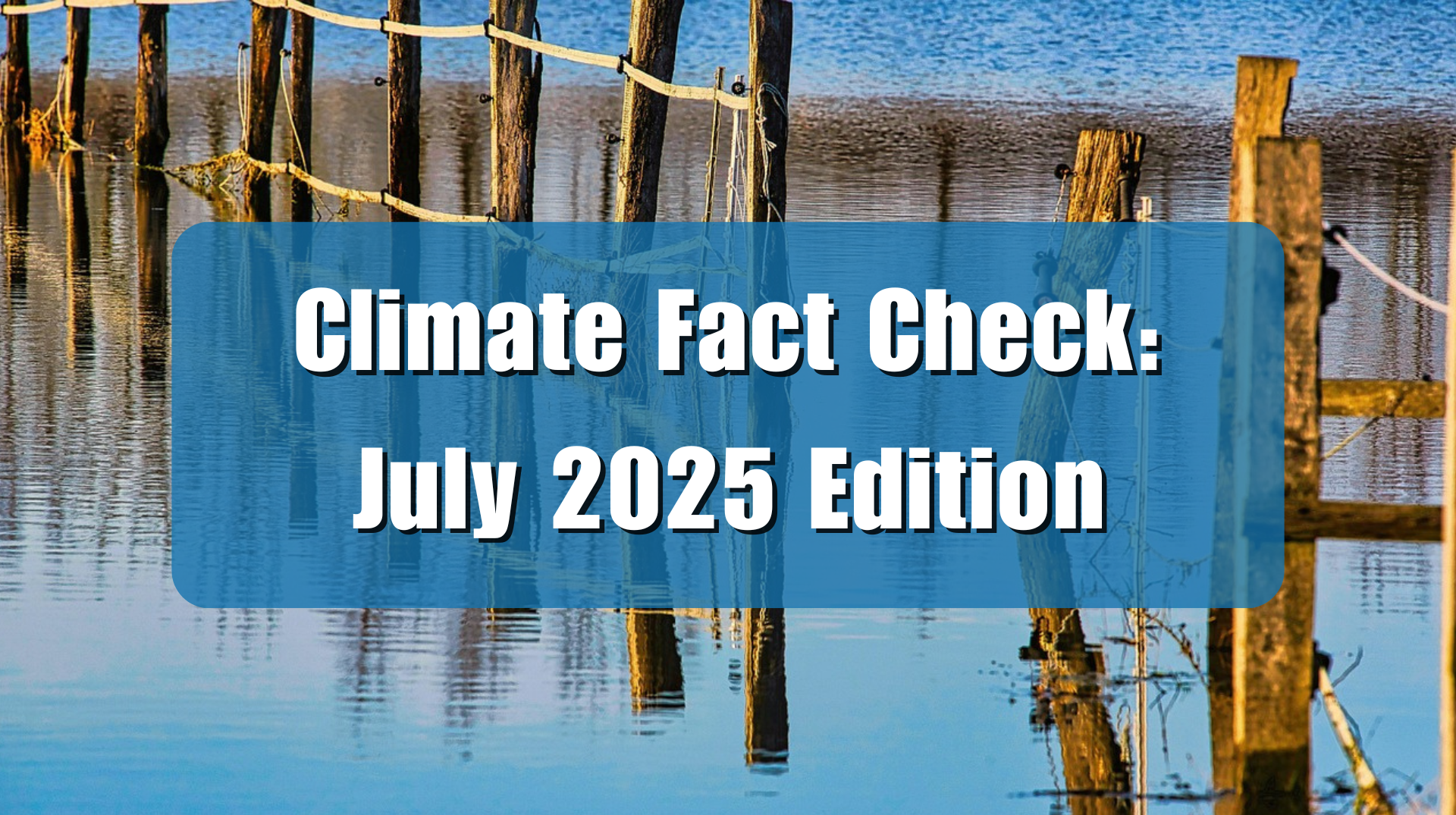A recent article in Financial Times repeats the often made late-winter/early spring claim that maple syrup production is being threatened by global warming. Available data shows that this claim is as false now as it has always been in the past. Maple syrup production has increased over time, setting records frequently. While some regions or farms may have a bad year from time to time, this does not reflect the overall maple syrup production trend.
The paywalled and alarmingly titled article, “Maple-pocalypse? Syrup looks like the latest victim of climate change,” written by Patti Waldmeir, insists that maple syrup production in the U.S. is threatened by the modest warming of the past century. Waldmeir writes that the tapping season “is already starting earlier, and within years or decades, sap will be less sugary, each tap will yield less and some parts of the U.S. will stop producing the iconic pancake topping altogether, maple experts say.”
In support of this assertion, Waldmeir interviews “climate change ecologist” Toni Lyn Morelli, Ph.D., who said that “by 2100, the sap collection season midpoint will be earlier by a month, sugar content will fall and the region of peak sap flow will move 400km north, into Canada. She says some areas — maples are tapped as far south as Virginia — will stop producing.” (Emphasis mine)
This is deceptive framing. What Waldmeir and Morelli neglect to mention is that the vast majority of the world’s maple syrup production comes from Canada, particularly Quebec, not the United States. This has historically been the case. Canada alone produces 71 percent of the world’s maple syrup. Vermont produces the bulk of maple syrup in the United States. Virginia, which the article mentions as particularly threatened, doesn’t even make the top 12 list of maple syrup producers.
Another scientist interviewed by Waldmeir pours cold water on the “Maple-pocalypse” narrative. Northwestern University’s Eli Suzukovich III, Ph.D., says that actually, despite climate change’s alleged threat to far-south production regions, it favors others, specifically saying “[t]he maple industry is not going to fail[.]” He also points out that Canada’s maple syrup production hit a record last year.
Professor Suzokovich is right. Despite the fearmongering, data show that as the Earth has modestly warmed, maple syrup production has continued to break records, even in the United States. The latest maple syrup production data from Statista shows that the last decade has seen four all-time production records in the United States, with 2022’s production season being the best year yet. (See figure below)
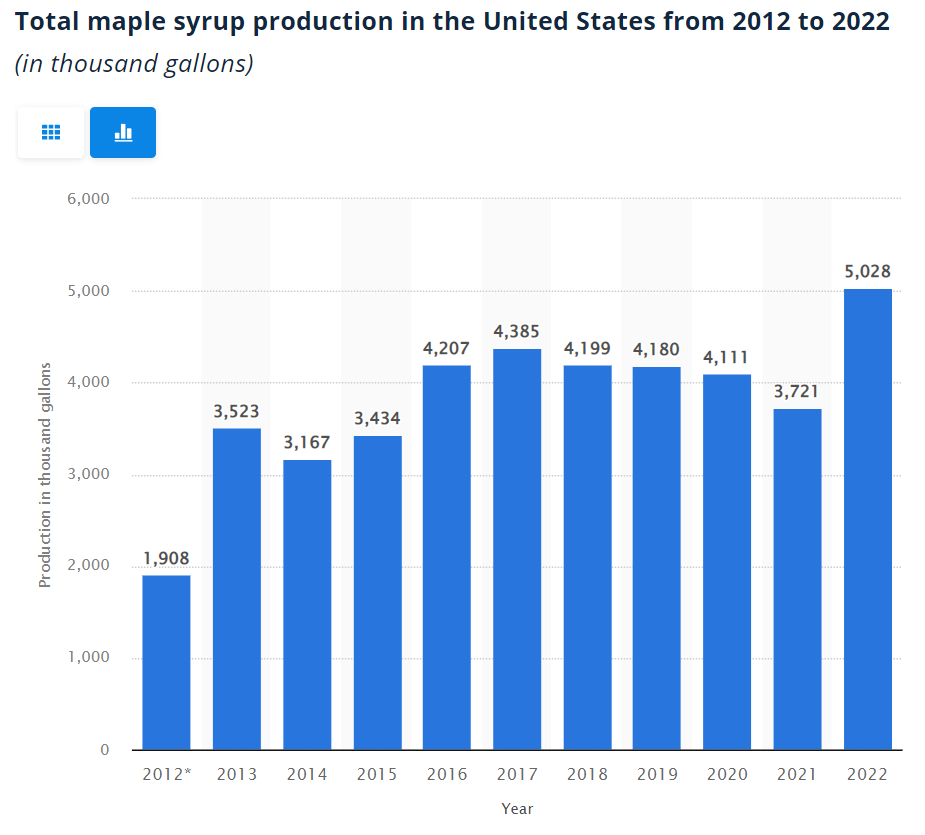
Available data shows Canada has also experienced increased production over time. (See figure below)
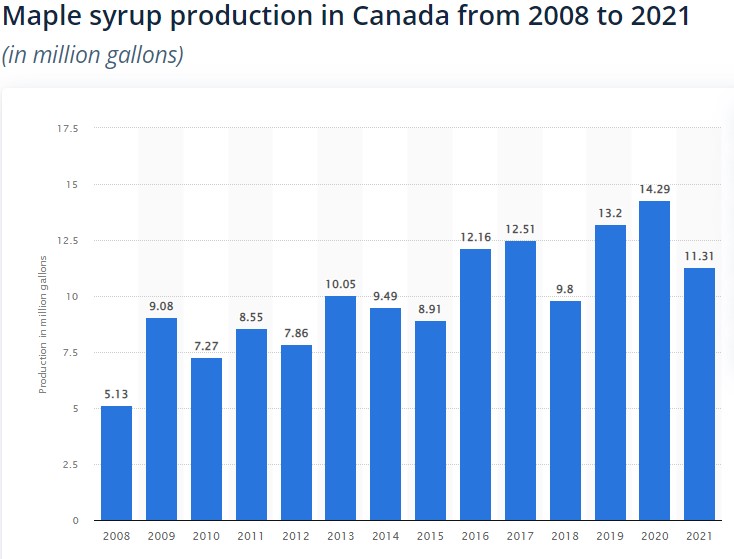
As Climate Realism has discussed, when similar assertions about climate change threatening to destroy maple syrup production have popped up during past years, the threat of modest warming to maple syrup production, if it exists at all, has been vastly overstated. For example, in the post, “Media Taps ‘Maple Syrup Climate Crisis’ – As Production Sets Records,” James Taylor, president of The Heartland Institute, points out that “scientists have found that maple sap production season advances merely four days for every 1 degree Celsius in temperature.” Since the current measurements of climate change indicate that there has been only barely over 1 degree Celsius change over the past century, that means four days is the estimated change to maple sap season. Hardly a “maple-pocalypse.”
Had Waldmeir and Financial Times been interested in reporting facts rather producing a trite seasonal fearmongering story about climate change and maple syrup production, it would be clear that the industry is not in danger. Maple syrup is abundant and there is no good reason for thinking it won’t continue to be in the future. So, pour an extra dollop of maple syrup on your pancakes.


